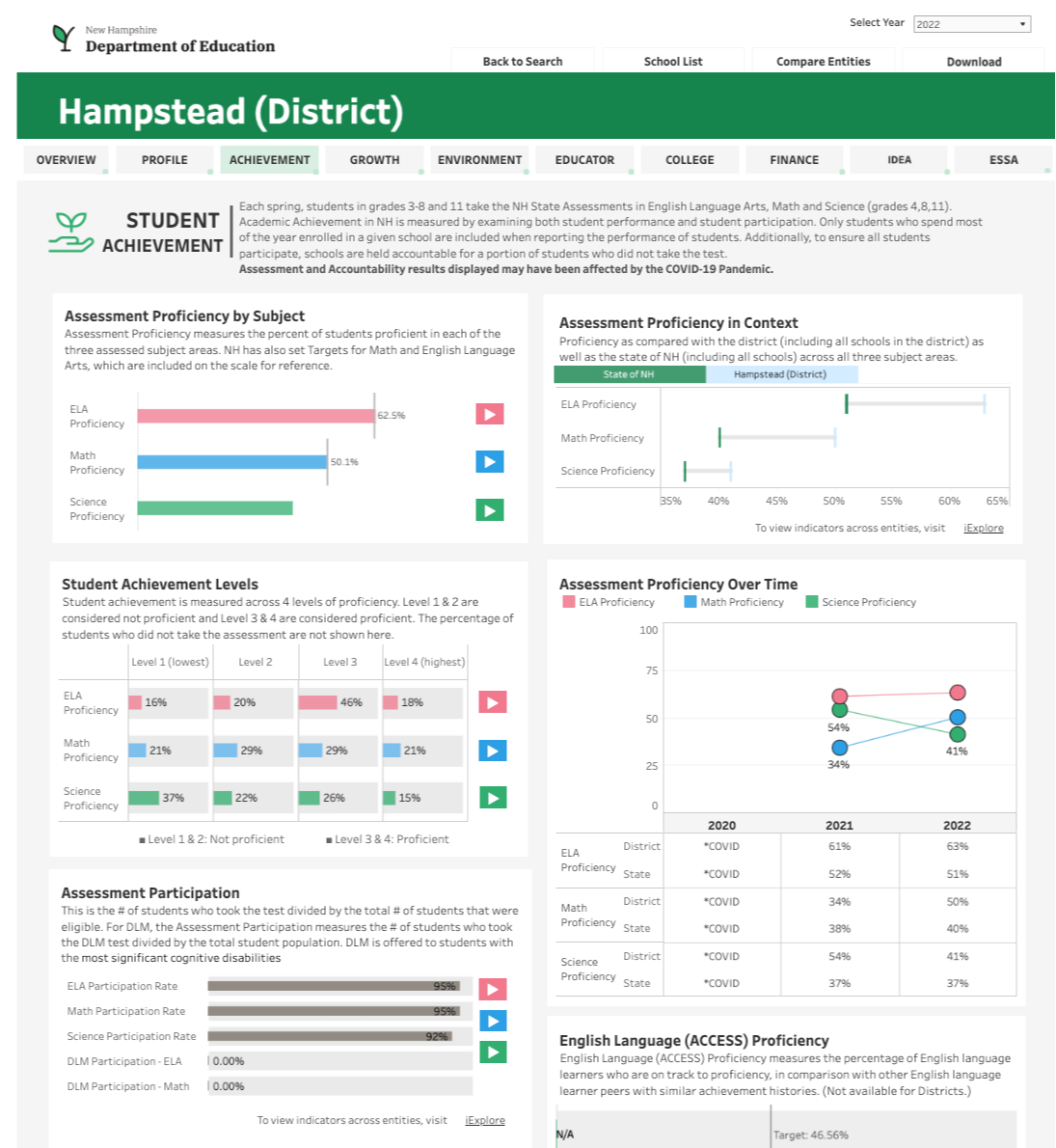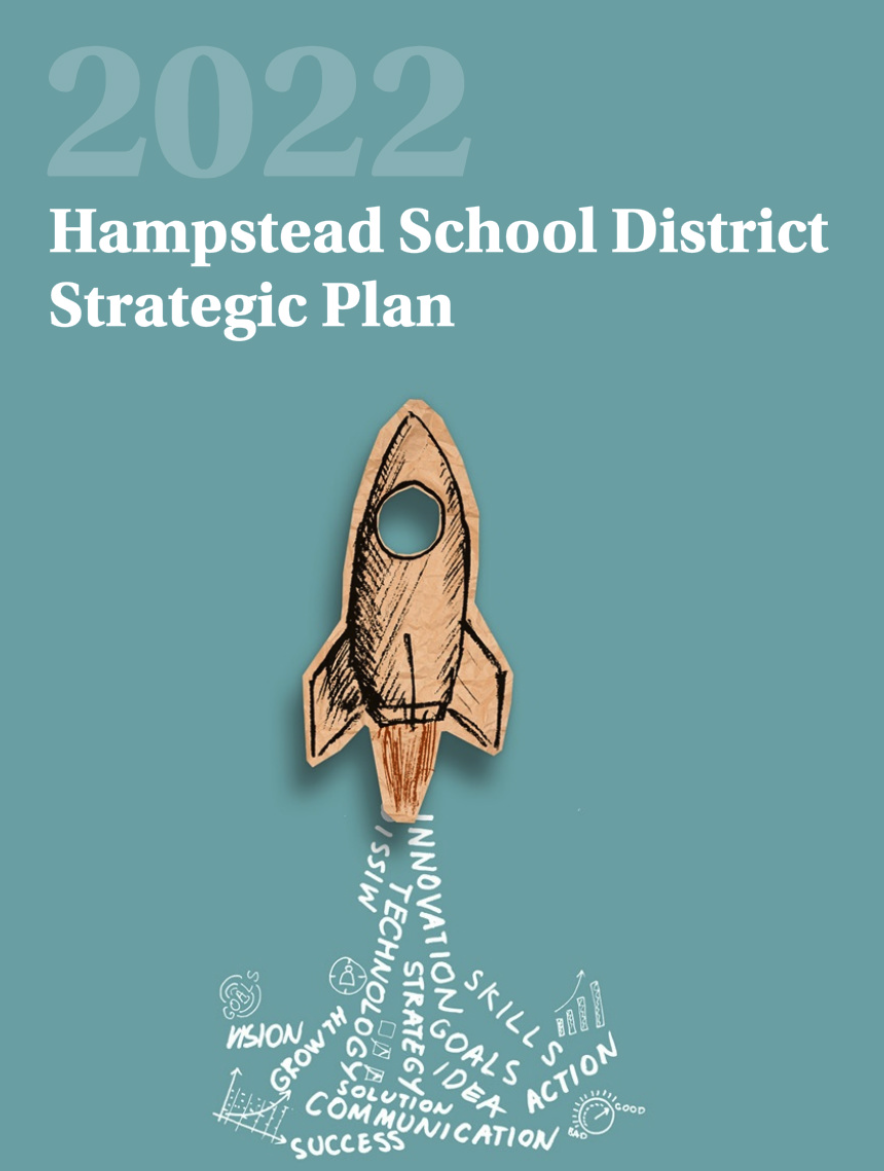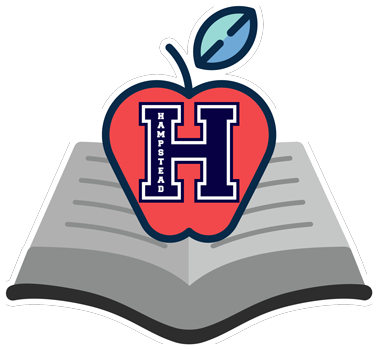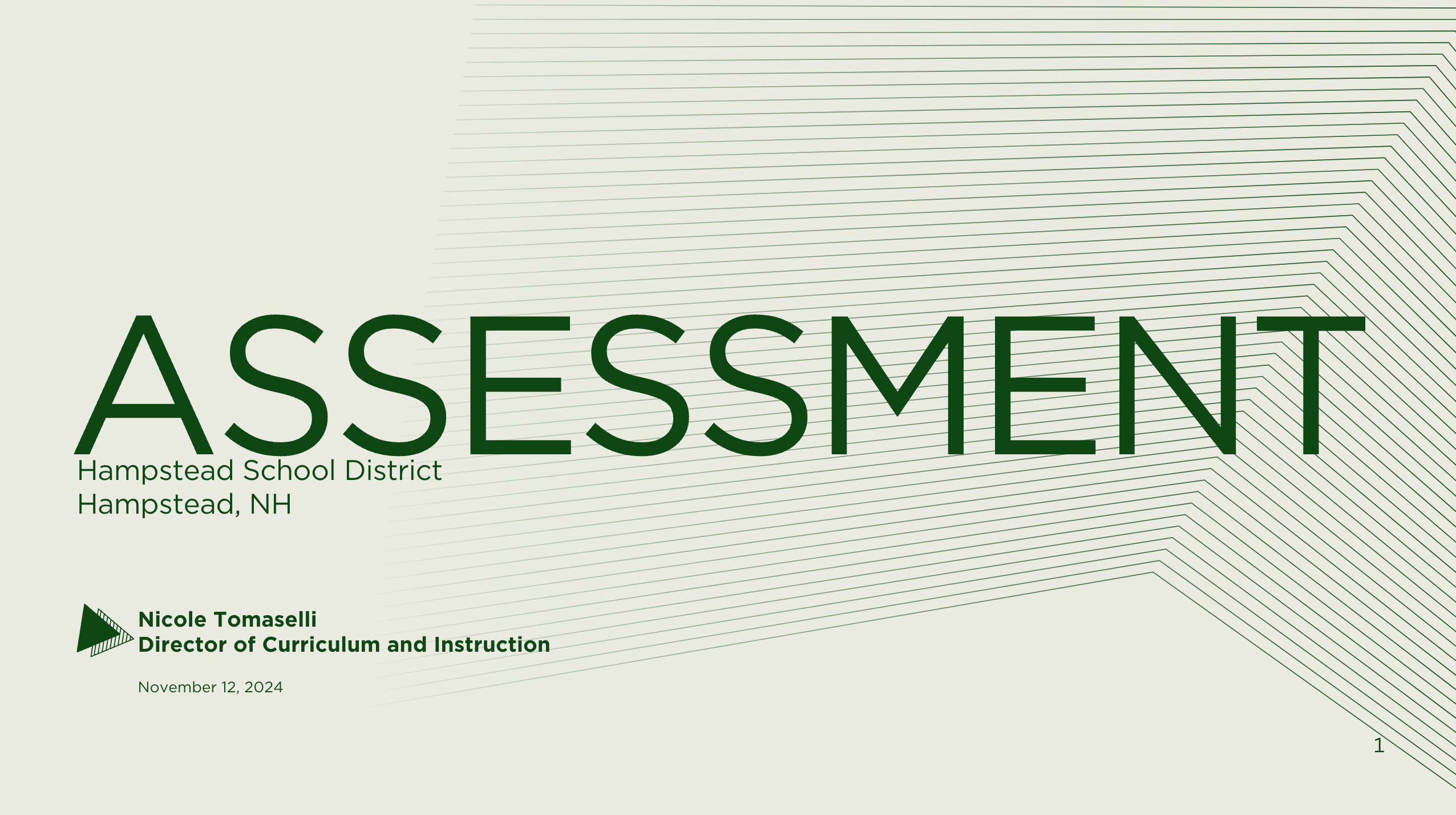Director of Curriculum and Instruction
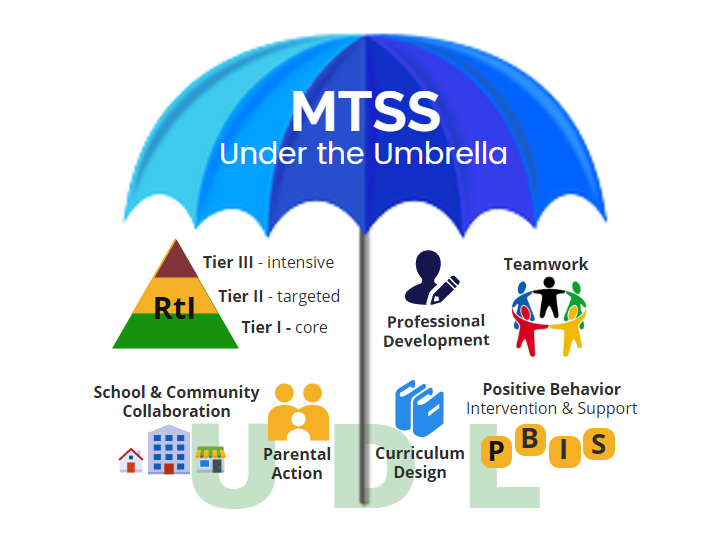
Curriculum
Hampstead School District develops our own curriculum to best meet the evolving needs of our population. Each year, collaborative teams of grade level teachers, specialists and content area specialists work together to reflect and make improvements to our curriculum. By looking through our curriculum documents you will see that it is organized by Units of Instruction with themes or topics for each grade and content area. Within any given curriculum there is often a scope and sequence to help both student and teacher keep a productive pace, essential questions, enduring understandings, vocabulary and learning targets.
In Hampstead our curricula are aligned to State and National standards to ensure our students are fully prepared to become informed citizens. Furthermore our instruction and programming is designed to encourage students to exceed those baseline expectations and explore content, develop their own skills and demonstrate what they know and what they can do at deeper levels of knowledge. While the curriculum serves as the plan for instruction within our classrooms it does not dictate how an educator will approach the teaching and learning. For this reason, we are regularly engaging in Professional Learning as individual educators, in teaching teams or as a full staff.
Instruction
Additionally our teachers engage in deep pedagogical conversations during their Professional Learning Communities (PLCs) centered around effective instructional practices to develop highly engaging lessons that stimulate our students' minds, move our instruction forward based on formative feedback and personalize our instruction.
As a District we embrace the Core Values that are outlined in our Strategic Plan and are committed to continually:
Communicate with Positive Intent
Honor the Child
Build Relationships and Team
Act with Integrity
Foster a Culture of Collaboration
Assessment
Assessment refers to the process of gathering and analyzing evidence of student learning to evaluate their knowledge, skills, and understanding. It is important to know that our educators use assessments, both formative and summative, to determine what our students have learned, identify areas of strength and weakness, and inform instructional decisions. Assessments can take various forms, such as tests, quizzes, projects, presentations, portfolios, observations, and discussions. They can be conducted during or at the end of a unit, course, or academic year. Assessment plays a crucial role in providing feedback to both students and teachers, guiding instruction, and measuring overall educational effectiveness.
In Hampstead we participate in annual diagnostic, benchmarking and summative assessments using iReady as well as the NH Statewide Assessment System. More details about our performance in recent years is available in the presentation below.
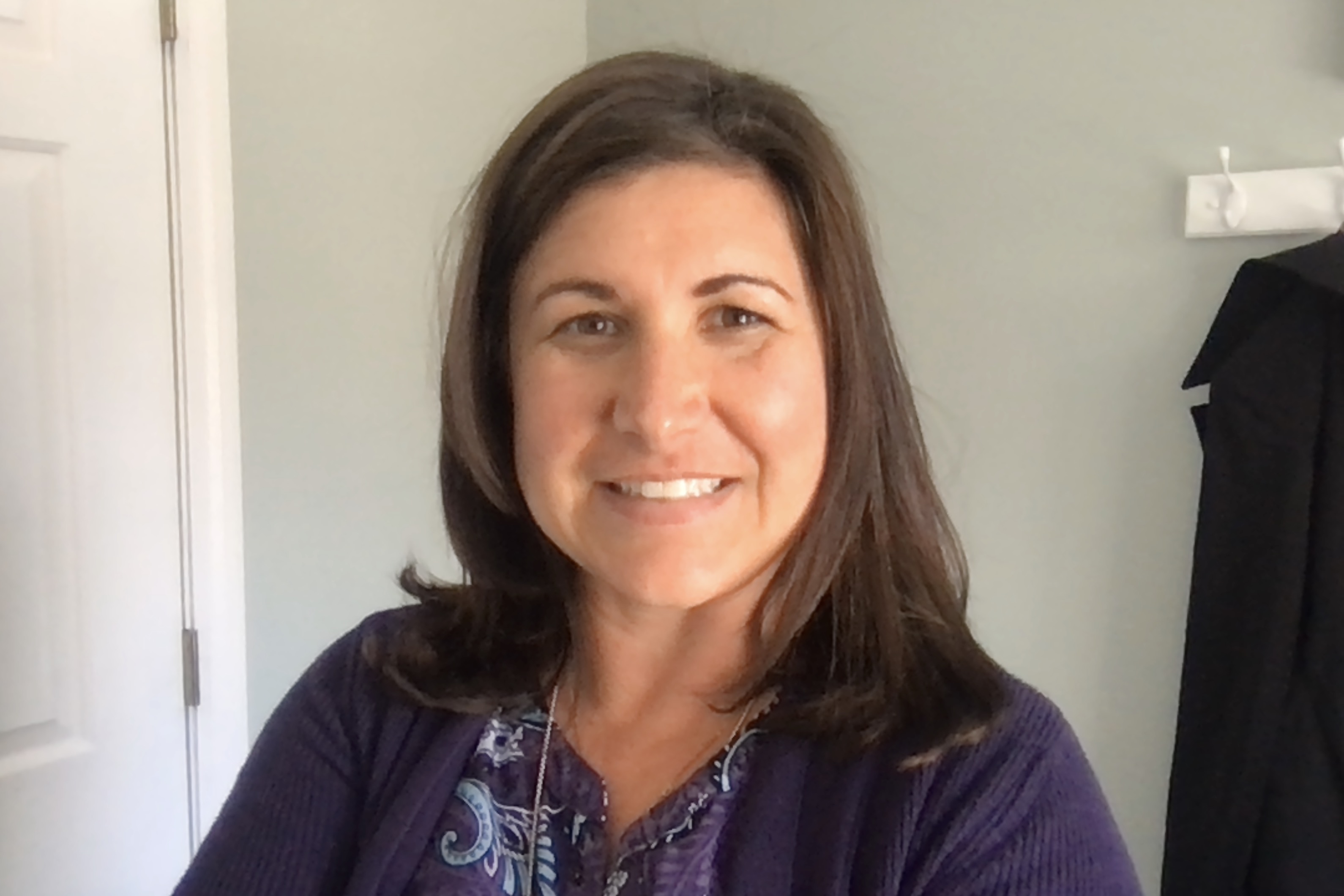
Nicole Tomaselli
Tell me and I forget. Teach me and I remember. Involve me and I learn.
Benjamin Franklin
Curriculum, instruction and assessment are three interconnected components of education that work together to support the learning process. Curriculum outlines what students should learn, instruction involves how teachers deliver the curriculum and assessment evaluates student learning and informs future instruction.
Assessment Information
Assessment Information 23-24 School Year
